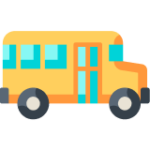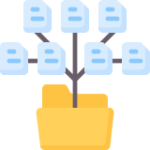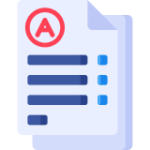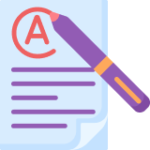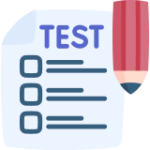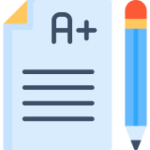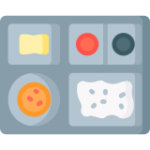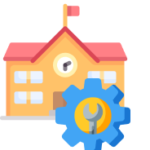
Foundational Stage
Focuses on nurturing curiosity, social skills, and foundational abilities. Encourages early exploration, emotional growth, and creativity
Preparatory Stage
Builds academic readiness, teamwork, and independence. Promotes self-discovery and skill development through structured learning experiences.
Middle Stage
Develops critical thinking, creativity, and collaboration. Strengthens subject knowledge and emotional intelligence for holistic growth.
Secondary Stage
Prepares students for future goals with academic rigor and self-reflection. Emphasizes personal responsibility, resilience, and career readiness.
Part (A)- Student Information
Auto populated from MCB SIS Data

Student Details

Contact Information

Family Information

Language & Environment

Contact Class Teacher

Attendance Record
Customised parameters for Holistic assessments at each stage
Foundational Stage
. Interests and Hobbies:
Simple overview of activities the student enjoys, such as drawing, playing, or singing.
Preparatory Stage
. Strengths
. Interests and Hobbies: Highlights interests such as reading, sports, or science.
Middle Stage
. Academic Strengths
. Extracurricular Interests
. Goals
Secondary Stage
. Academic Focus Areas
. Career Interests
. Personal Goals
Foundational Stage
Domains / Subject Focus Areas :
- Emphasizes play based, activity driven, and experiential learning .
- Cognitive Development: Ability to observe, identify, and relate objects and experiences.
- Language Skills: Vocabulary, listening, comprehension, and basic communication.
- Motor Skills: Fine and gross motor skills like cutting, drawing, or hand eye coordination.
- Social and Emotional Development: Sharing, empathy, social behaviour, and self regulation.
Self Progress Grid
- Self Reflection Prompts: Simple prompts like "What is your favourite activity?" or "What makes you happy in school?" encourage children to share their feelings about school in their own words.
- Awareness of Abilities: Students are encouraged to express areas they enjoy, like drawing or playing, which helps them start identifying strengths¶
- Emotional Expression: Using smiley faces or colors, students indicate their happiness or satisfaction with activities, which builds early self awareness.
Peer Progress Grid
- Positive Reinforcement: Children are encouraged to share kind words or simple compliments about their peers work, such as "I like your drawing!" or "You did a great job in the play!"
- Group Activities: During group tasks, children can express how they appreciate each other s contributions, reinforcing teamwork and collaboration.
- Emotion Sharing: Simple activities like using smiley faces or stickers allow children to express how they feel about their classmates work or actions, promoting a positive environment.
Rubric Levels:
- Stream: Indicates that the student is developing foundational skills.
- Mountain: Shows moderate proficiency and growing understanding.
- Sky: Demonstrates a high level of creativity and understanding

Ability (A)
- Meaning: Refers to the student s skills, competencies, and understanding in various subjects and activities
- Objective: Measures intellectual and practical skills, including problem solving, application of knowledge, and academic performance.
Sensitivity (S)
- Meaning: Evaluates empathy, awareness, and responsiveness to the emotions and needs of others, as well as social and environmental consciousness.
- Objective: Cultivates emotional intelligence, ethical behavior, and interpersonal skills.
Creativity (C)
- Meaning: Refers to the student s ability to think imaginatively, innovatively, and solve problems creatively.
- Objective: Encourages exploration, innovation, and artistic expression across academic and non academic areas
Teacher Feedback through Learner Profile on Ability (A)/ Sensitivity (S)/ Creativity (C)
The focus of teacher feedback is on a child s cognitive, social, and emotional growth:
Social Interaction and Communication:
Notes on how well the child interacts with peers, participates in group activities, and follows instructions.
Creativity and Curiosity:
Observations on the child’s imagination, curiosity, and approach to exploring new concepts. For instance, “Displays a keen interest in storytelling and is enthusiastic about art projects.”
Motor Skills and Coordination:
Development in fine and gross motor skills, such as drawing, cutting, and other hands-on activities. An example might be, “Has improved in hand-eye coordination and is more comfortable with activities that require precision.”
Emotional Sensitivity:
Notes on the child’s self-awareness, empathy, and ability to express feelings.
Preparatory Stage
Domains / Subject Focus Areas :
Builds foundational skills with more structure in numeracy, literacy, and introduction to abstract concepts.
- Academic Skills: Reading comprehension, basic mathematical operations, and introduction to scientific inquiry.
- Problem-Solving and Critical Thinking: Ability to apply concepts and engage in creative problem solving.
- Language Development: Effective communication, writing abilities, and basic grammar.
- Socio emotional and Physical Development: Participation in group activities, emotional regulation, and physical activities.
Self Progress Grid
- In this stage, students are beginning to develop more detailed reflections on their experiences, accomplishments, and areas where they may need improvement.
- Simple Goal-Setting: Students may set small goals, such as I want to read more books or I will try to participate more in group activities, encouraging responsibility and growth.
- Identifying Strengths and Challenges: Students start recognizing what they enjoy and where they face difficulties, such as "I enjoy math but sometimes find it hard to finish my work on time."
- Personal Growth: Self assessments might ask students what they re proud of or what they d like to improve, building self confidence and critical thinking.
Peer Progress Grid
Peer feedback becomes more structured, encouraging students to provide constructive comments on each other s work¶
- Structured Feedback Sessions: Students can engage in activities where they assess each other s projects or assignments, guided by simple criteria¶
- Encouraging Improvement: Students can offer suggestions for improvement, such as I think you could add more details to your drawing to make it even better."
- Reflective Practices: After group activities, students may discuss what they learned from each other and how they contributed to the group s success.
Rubric Levels:
- Beginner: Initial grasp of concepts, needing support.
- Proficient: Shows understanding and skill application.
- Advanced: Exhibits deep understanding and creative application.

Ability (A)
- Meaning: Refers to the student s skills, competencies, and understanding in various subjects and activities
- Objective: Measures intellectual and practical skills, including problem solving, application of knowledge, and academic performance.
Sensitivity (S)
- Meaning: Evaluates empathy, awareness, and responsiveness to the emotions and needs of others, as well as social and environmental consciousness.
- Objective: Cultivates emotional intelligence, ethical behavior, and interpersonal skills.
Creativity (C)
- Meaning: Refers to the student s ability to think imaginatively, innovatively, and solve problems creatively.
- Objective: Encourages exploration, innovation, and artistic expression across academic and non academic areas
Teacher Feedback through Learner Profile on Ability (A)/ Sensitivity (S)/ Creativity (C)
In the preparatory years, feedback focuses on academic readiness, independence, and evolving social skills. Teachers provide insights on:
Academic Awareness and Skill-Building
Observations on emerging skills in reading, math, and foundational sciences.
Social Development and Teamwork
Notes on the child’s ability to work in groups, take turns, and contribute to class discussions.
Personal Responsibility:
Feedback on the student’s ability to complete tasks, follow routines, and manage materials.
Curiosity and Engagement:
Observations on how the child approaches learning and demonstrates creativity
Middle Stage
Domains / Subject Focus Areas :
Builds foundational skills with more structure in numeracy, literacy, and introduction to abstract concepts.
- Academic Competency: Subject understanding in areas like mathematics, science, social studies, and languages.
- Analytical and Logical Skills: Critical thinking, data analysis, and problem solving abilities.
- Practical and Collaborative Skills: Hands on activities, project based learning, teamwork, and communication skills.
- Emotional and Social Growth: Leadership skills, emotional management, and responsible decision making.
Self Progress Grid
In this stage, students are beginning to develop more detailed reflections on their experiences, accomplishments, and areas where they may need improvement.
- Simple Goal-Setting: Students may set small goals, such as I want to read more books or I will try to participate more in group activities, encouraging responsibility and growth.
- Identifying Strengths and Challenges: Students start recognizing what they enjoy and where they face difficulties, such as "I enjoy math but sometimes find it hard to finish my work on time."
- Personal Growth: Self assessments might ask students what they re proud of or what they d like to improve, building self confidence and critical thinking.
In this stage, students are beginning to develop more detailed reflections on their experiences, accomplishments, and areas where they may need improvement.
Peer Progress Grid
| Skill/Attribute | Feedback Areas | Peer Observations |
|---|---|---|
| Academic Effort | Completeness, accuracy, and consistency in work | "Consistently completes assignments on time with detail." |
| Critical Thinking | Analysis, creativity, and problem solving | "Applies creative solutions and thinks deeply about topics. |
| Collaboration | Teamwork, respect, and leadership | "Contributes well in group projects and respects others ideas." |
| Communication Skills | Clarity, listening, and articulation | "Expresses ideas clearly and listens actively in discussions." |
| Positive Attitude | Enthusiasm, resilience, and adaptability | "Brings a positive energy to class and adapts well to challenges." |
| Goal Setting | Responsibility and follow through on goals | "Sets achievable goals and takes steps to reach them." |
This Peer’s Progress Grid helps students appreciate their classmates’ contributions and provides constructive feedback that encourages self-awareness, empathy, and personal growth within the learning community.
Rubric Levels:
- Beginner: Developing comprehension and expression.
- Proficient: Demonstrates growing literary skills.
- Advanced: Shows a strong grasp and creative use of literary elements.

Ability (A)
- Meaning: Refers to the student s skills, competencies, and understanding in various subjects and activities
- Objective: Measures intellectual and practical skills, including problem solving, application of knowledge, and academic performance.
Sensitivity (S)
- Meaning: Evaluates empathy, awareness, and responsiveness to the emotions and needs of others, as well as social and environmental consciousness.
- Objective: Cultivates emotional intelligence, ethical behavior, and interpersonal skills.
Creativity (C)
- Meaning: Refers to the student s ability to think imaginatively, innovatively, and solve problems creatively.
- Objective: Encourages exploration, innovation, and artistic expression across academic and non academic areas
Teacher Feedback through Learner Profile on Ability (A)/ Sensitivity (S)/ Creativity (C)
Feedback focuses on cognitive development, critical thinking, and emotional growth.
Teachers highlight
- Analytical and Literary Skills: Observations on the student s ability to interpret information, think critically, and engage with texts.µ
- Creative Expression and Problem Solving: Notes on creative approaches to assignments and ability to propose solutions to problems.
- Personal and Social Responsibility: Feedback on how well the student takes initiative, respects others, and contributes to the school community.µ
- Emotional Awareness and Adaptability: Observations about the student s emotional growth and resilience in handling challenges.
Secondary Stage
Domains / Subject Focus Areas :
Aimed at deeper subject specialization, preparing for future education or careers.
- Subject Mastery: In depth understanding and application of advanced subject concepts.
- Critical Thinking and Innovation: Analysis, synthesis of ideas, and innovative approaches to problem solving
- Career and Life Skills: Goal setting, time management, and adaptability.
- Social and Emotional Intelligence: Leadership, empathy, ethical reasoning, and social responsibility
Self Progress Grid
In high school, self assessment becomes more comprehensive, focusing on academic goals, personal achievements, and preparation for future pathways
- Academic Reflection and Subject Proficiency: Students analyze their performance in different subjects, identifying where they excel and where they need further improvement
- Personal and Academic Goals: Students set meaningful academic and career oriented goals, such as I want to improve my analytical skills to pursue a career in science.
- Career and Life Skills Awareness: They may assess their progress in life skills like time management, resilience, and responsibility. This can include reflections such as I am managing my study time well but need to work on balancing extracurricular activities.
Projects:
Subject Specific Projects
In depth work in core subjects, enhancing research, analysis, and presentation skills.
Interdisciplinary Projects
Combines subjects to solve real world problems, promoting teamwork and creative thinking.
Capstone Projects
Culminating, independent work that showcases comprehensive skills, preparing students for future goals.
Career Explorations
Projects or internships aligned with career interests, building professional skills and insights.
Community Project
Service based activities to foster social responsibility and empathy.
Peer Progress Grid
In secondary school, feedback focuses on academic rigor, future planning, and personal growth. Teachers provide detailed insights onØ
- Subject-Specific Competence: Observations on the student’s strengths and progress in core subjects, such as mathematics, sciences, and the humanities.
- Critical Thinking and Intellectual Curiosity: Notes on analytical skills, intellectual curiosity, and engagement in discussions
- Independence and Time Management: Feedback on how the student manages academic responsibilities and prepares for future goals.
- Emotional Maturity and Goal-Setting: Observations on emotional resilience, self awareness, and alignment with future goals.
Rubric Levels:
- Beginner: Developing comprehension and expression.
- Proficient: Demonstrates growing literary skills.
- Advanced: Shows a strong grasp and creative use of literary elements.

Ability (A)
- Meaning: Refers to the student s skills, competencies, and understanding in various subjects and activities
- Objective: Measures intellectual and practical skills, including problem solving, application of knowledge, and academic performance.
Sensitivity (S)
- Meaning: Evaluates empathy, awareness, and responsiveness to the emotions and needs of others, as well as social and environmental consciousness.
- Objective: Cultivates emotional intelligence, ethical behavior, and interpersonal skills.
Creativity (C)
- Meaning: Refers to the student s ability to think imaginatively, innovatively, and solve problems creatively.
- Objective: Encourages exploration, innovation, and artistic expression across academic and non academic areas
Teacher Feedback through Learner Profile on Ability (A)/ Sensitivity (S)/ Creativity (C)
Secondary school, feedback focuses on academic rigor, future planning, and personal growth. Teachers provide detailed insights on
- Subject-Specific Competence: Observations on the student s strengths and progress in core subjects, such as mathematics, sciences, and the humanities
- Critical Thinking and Intellectual Curiosity: Notes on analytical skills, intellectual curiosity, and engagement in discussions.µ
- Independence and Time Management: Feedback on how the student manages academic responsibilities and prepares for future goals.
- Emotional Maturity and Goal-Setting: Observations on emotional resilience, self awareness, and alignment with future goals.
MyClassboard s holistic report card is a powerful tool that can transform the way schools assess and report student progress. By embracing this innovative solution, schools can provide a superior learning experience and empower students to reach their full potential

















